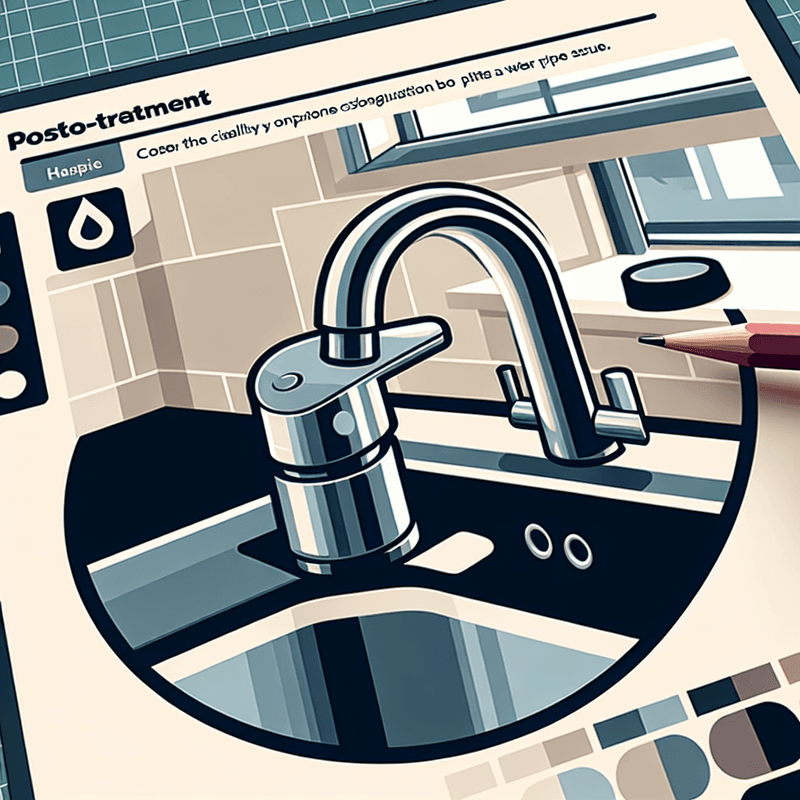Have you ever been startled by unexpected banging or knocking sounds coming from your plumbing system? These noises, often referred to as 'water hammer', can be annoying and may even hint at potential underlying issues within your pipe infrastructure. Understanding what causes these sounds and how to address them is essential for maintaining the integrity and functionality of your home's plumbing.
What Exactly is Water Hammer?
Water hammer occurs when water flowing through the pipes is suddenly forced to stop or change direction, causing a shockwave. This shockwave can lead to vibrations and banging noises that resonate throughout the plumbing system. While it might sound severe, it's a common issue in many households.
Common Causes of Water Hammer
1. High Water Pressure: Residential plumbing systems are designed for a specific pressure level, and when the pressure exceeds this limit, it can cause rapid stops and starts in water flow, leading to water hammer.
2. Quick-Closing Valves: Appliances like washing machines and dishwashers have electric valves that shut off water abruptly. The sudden cessation of flow can trigger water hammer.
3. Lack of Air Chambers: Air chambers are designed to cushion the shock when the water flow is halted abruptly. If these chambers become waterlogged or are non-existent, water hammer can occur.
Identifying Water Hammer in Your Home
If you're hearing a banging noise from your pipes, especially after turning off a tap or when the dishwasher or washing machine turns off the water supply, you're likely experiencing water hammer. Check for these noises:
- Immediately after shutting off a tap.
- When using appliances that use a significant amount of water.
- At night, when it's usually quieter and the sounds become more noticeable.
DIY Tips to Mitigate Water Hammer
Water hammer doesn't immediately imply a critical problem, but it shouldn't be ignored. Here are a few methods to try before considering professional help:
- Secure Loose Pipes: Sometimes, simply securing loose piping can reduce the vibrations causing the knocking sounds.
- Adjust the Water Pressure: Reducing the overall water pressure can help. This is usually done at the main water supply valve. However, ensure to check the correct pressure levels suitable for your home to avoid other plumbing issues.
- Install Water Hammer Arrestors: These are specially designed to absorb the shock of halted water flow. They can be installed near appliances and fixtures that are known to cause water hammer.
When to Call a Professional
If the above DIY tips don't eliminate the water hammer, it's time to consult with a professional. Persistent water hammer can strain your plumbing joints and lead to leaks or other damages over time. Professionals might:
- Check and reset your home’s water pressure.
- Install or replace faulty air chambers.
- Offer customized solutions based on the specific setup and needs of your plumbing system.
Long-Term Prevention of Water Hammer
Preventing water hammer involves routine checks and maintenance:
- Regularly check the water pressure and adjust it if necessary.
- Inspect pipes annually for signs of wear and fix loose sections promptly.
- Consider professional inspections, especially if your home has an older plumbing system.
Conclusion
Understanding and addressing the knocking sounds in your pipes can prevent potential damages and maintain a peaceful home environment. Start by trying the DIY solutions such as securing loose pipes or adjusting water pressure. However, if problems persist, calling in a professional isn’t just a good idea—it’s a necessary step towards safeguarding your home’s plumbing integrity. Knowing when to tackle plumbing issues yourself and when to call for professional help can save time, money, and prevent minor issues from escalating. Remember, a quiet plumbing system is a happy plumbing system!





